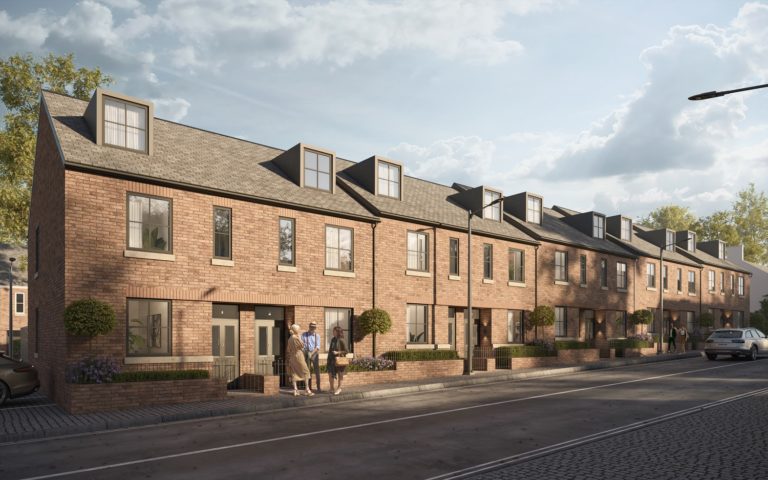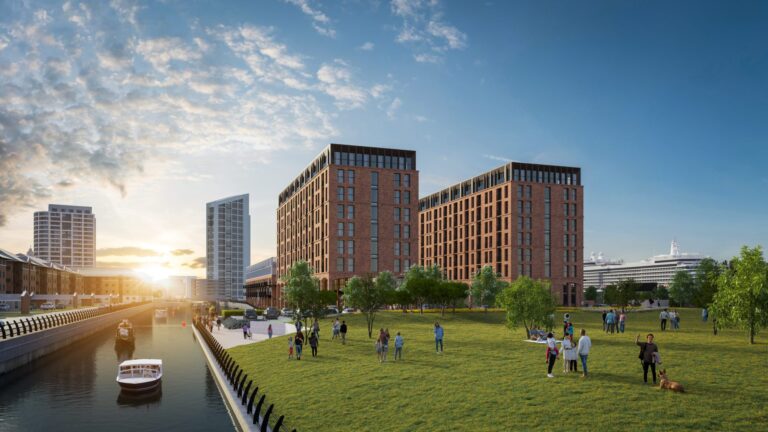Climate change is still one of the most poignant topics concerning people across the world today. The current coronavirus pandemic could offer an opportunity for change in the UK housing market.
While some government policy may have been placed on the back-burner thanks to the current situation, environmental issues are still a much-discussed topic. Arguably, they have come to the fore in some circles even more in recent weeks. Pollution levels have dropped significantly, while most people are using their homes in a very different way to how they were before March.
In light of the ongoing situation, as well as the government’s goal for the UK to reach net-zero carbon emissions by 2050, the Royal Institute for Chartered Surveyors (RICS) has released a new policy proposition paper for the government. The publication, titled ‘Retrofitting to decarbonise UK existing housing stock‘, addresses a wide range of issues affecting the property market. It also proposes a number of solutions to help the UK achieve its carbon neutral goals.
Investing in newer property
The UK’s built environment, including the construction industry, is responsible for around 39% of UK carbon emissions. This compares to 23% for transport (GlobalABC).
According to RICS, around 15% of total UK emissions currently come from heating homes. However, less than 5% of the energy used for heating homes and buildings derives from low-carbon sources. This, therefore, is one of the key areas for change highlighted by RICS.
New-builds are one of the most energy-efficient property types to invest in. They tend to have the highest EPC ratings, higher build quality to meet current NHBC standards, as well as more modern fixtures and fittings. The government wants all UK properties to have minimum EPC ratings of C by 2035, so investing in a new-build should ensure that this standard is easily met.
However, less than 1-2% of total annual building stock is new-build, says the report. This means that the main focus should be on retro-fitting existing properties.
Focus on green housing after coronavirus
RICS believes that pushing ahead with carbon-focused proposals will aid the country’s recovery from COVID-19. Since the UK went into lockdown in March, people have been spending more time at home than ever. Therefore, placing a stronger focus on green housing solutions now could provide huge potential benefits.
Dr Patrice Cairns, RICS policy manager, commented: “Retrofitting provides the UK with an opportunity to achieve both operational carbon and significant embodied carbon savings through re-use rather than re-build. Government ambitions are clear, but the policy route is uncertain.
“As the UK prepares to spend more time at home, for our work as well as leisure, the benefits of green home improvements will continue to gather momentum. Government must use this unique opportunity to review their existing policies, working with the expertise of industry, and implement a holistic approach to retrofitting.”
The recommendations from RICS include:
- A uniform VAT rate of 5% for home improvement and repair to houses to enhance energy efficiency
- A review of the impact of the Minimum Energy Efficient Standards at point of sale. This would be part of the regulatory ambitions to bring all dwellings to an EPC rating of C by 2035.
- Government to support industry in the growth and regulation of the proptech sector. It should fully exploit the value of property-based data in aiding greening homes.
- Government must engage with industry to improve public awareness of standards and professional competency-based advice and training regarding energy efficiency retrofits and wider home improvement works. This applies to heritage buildings which are more complex and present a skills gap in the market.
- Government must create long-term policy and regulatory energy efficiency roadmaps to bring confidence to the financial sector. It should encourage mortgage lenders to invest and develop products to support these ambitions.
More stamp duty change suggestions
RICS also proposes a variable stamp duty rate as an incentive to the market. It is an idea coined by other organisations, including the Green Task Force. According to them, variable stamp duty rates based on the energy efficiency of a home “could incentivise around 16 million homes to make energy efficiency improvements by 2035”.
However, the government has so far been reluctant to make any drastic changes to stamp duty. The most recent shift was in favour of first-time buyers getting onto the property ladder. But since then, despite calls for stamp duty cuts to get the sector moving, no changes have been made.
Recently, RICS called for a stamp duty holiday across the housing market to boost buying and selling. Further to this, Mary-Anne Bowring, managing director at Ringley Group, has suggested a tax break for property investors.
Better mortgages for green property owners
‘Green mortgages’ already exist with certain lenders in the UK. Barclays, for example, offers a Green Home Mortgage for people buying an energy-efficient new-build from one of its partner house builders. These preferential rates offer an added incentive to invest in a new-build property to save money. Nationwide is planning on offering similar products.
RICS has urged the government to push this strategy forward to offer more products to borrowers. It believes that if lenders begin to take energy efficiency into account in their affordability assessments, they will make these property types more popular.
“For lenders this incentive would be on the premise that as energy efficient homes are more cost effective, owners should be more able to cover mortgage repayments. In response, several industry-based projects have aimed to assess this validity of this link.”









